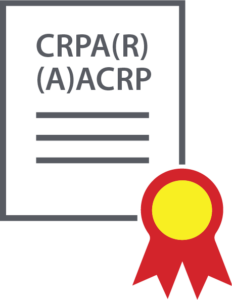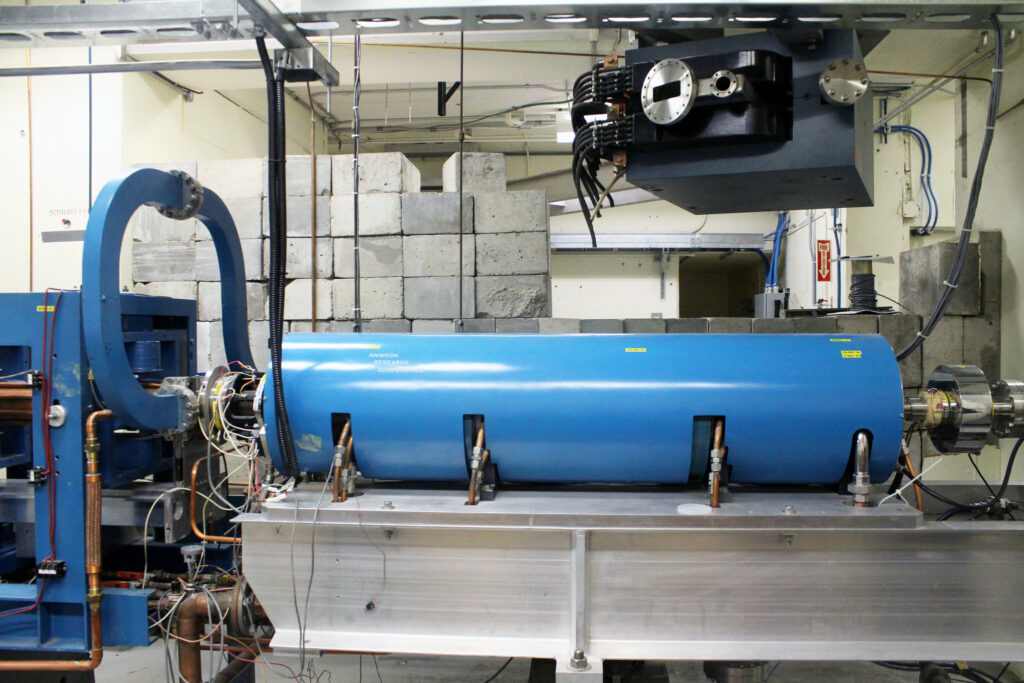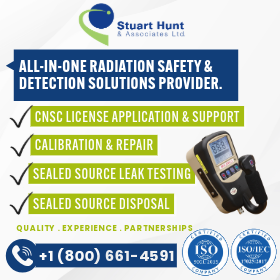CRPA(R) Prep, April 2024
An Interview with a CRPA(R) Who Uses His Designation to Tap Into a Community with Extensive Radiation Protection Experience
By Grant Cubon
 CRPA offers a Registered Radiation Safety Professional designation. Registered members who obtain the designation can use the letters CRPA(R) after their signature.
CRPA offers a Registered Radiation Safety Professional designation. Registered members who obtain the designation can use the letters CRPA(R) after their signature.
As an employer of radiation safety specialists, I include a CRPA(R) designation as a “nice to have” in job postings. I have always seen value in having staff at our facility who have obtained and maintain their designation. They learn quickly, solve problems promptly, and maintain a very good radiation protection program for our facility.
The accreditation through CRPA
- provides a healthy understanding of general radiation protection principles and practical applications,
- provides a mechanism for professional development and growth, and
- allows participants to build a network of colleagues in radiation protection.
But what do the CRPA(R)s think? I asked some CRPA(R) certified colleagues what benefits they saw in the designation.

Side view of the Canadian Light Source (CLS) electron gun mounted on its girder. Source: https://www.flickr.com/photos/97079436@N04/28170778528/
Brian Bewer
Radiation specialist, Health, Safety and Environment, with the Canadian Light Source at the University of Saskatchewan
What is your current position and role?
I am a radiation specialist (Health, Safety, and Environment) with the Canadian Light Source at the University of Saskatchewan. My role includes
- providing recommendations on radiation shielding for new and existing projects,
- assisting with the measurements required in the radiation protection and control program,
- surveying and analyzing the items in the radiation storage area to determine isotopes and activities for unconditional release,
- recording and cataloguing the performance of the radiation protection and control program in areas of specific interest to management, and
- providing recommendations on how the radiation protection program can improve or change.
How did you get started in radiation protection?
My experience in radiation protection began during my graduate studies when I was using synchrotron radiation to image live animals. As part of the ethics approval process, to be able to perform the measurements that were necessary to calculate the maximum dose the animals would receive, I had to prove that the imaging plan would not cause harm to the animals. Thus began my introduction to surface dose, deep dose, and many other factors. Over several years, I became more involved in the radiation protection field.
Is a CRPA(R) designation required for your job?
It is not required for my job, but the knowledge from obtaining the designation has been useful for a variety of radiation protection and control projects.
When did you get your CRPA(R) designation?
I wrote the exam and received my CRPA(R) designation in 2018.
Why did you pursue a CRPA(R) designation?
I was encouraged to take the exam by my supervisor.
What benefits do you see in having a CRPA(R) designation?
In addition to the knowledge accumulated while studying for the exam, you gain a community with extensive experience. Once CRPA(R) certified, if a situation arises that you have not dealt with before, you can ask radiation safety officers across the country for their opinion.
Would you recommend getting a CRPA(R) to others interested in radiation protection?
I would recommend becoming a CRPA(R) if your career will be in the field of radiation protection.
Any other thoughts?
I highly recommend attending the CRPA conference as consistent attendance is informative and a great way obtain points towards the maintenance of your CRPA(R) designation.
Do you want to read more articles like this?
The Bulletin is published by the Canadian Radiation Protection Association (CRPA). It’s a must-read publication for radiation protection professionals in Canada. The editorial content delivers the insights, information, advice, and valuable solutions that radiation protection professionals need to stay at the forefront of their profession.
Sign up today and we’ll send you an email each time a new edition goes live. In between issues, check back often for updates and new articles.
Don’t miss an issue. Subscribe now!
Subscribe



